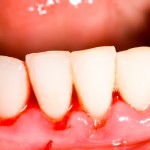
Gingivitis is a common problem affects between 50-90% of the population. It is considered a risk factor for more serious periodontal diseases. Management of gingivitis typically involves mechanical plaque removal, elimination of plaque retentive factors and effective plaque control. Recently, there has been an increasing focus on additional tools for managing gingival inflammation. The aim of this review was to assess the effectiveness of anti-inflammatory agents in treating gingivitis as solo or adjunctive agents.
Methods
Searches were conducted in the Medline, Embase and Cochrane Central Register of Controlled trials (CENTRAL). This was supplemented by hand searches of a number of periodontal journals: Journal of Clinical Periodontology, Journal of Periodontology, Journal of Periodontal Research, Journal of Dental Research, Clinical Oral Implants Research, International Journal of Oral & Maxillofacial Implants.
Randomised controlled trials (RCTs) and prospective cohort studies of the effect of anti-inflammatory agents (NSAID, steroids, anti-IL1, Anti-TNF; any drugs with possible anti- inflammatory mechanism (statins, etc.); innovative drugs with anti-inflammatory properties; natural substances with anti-inflammatory claims -given either systemically or locally) on gingivitis were considered. 2 reviewers independently selected studies, with 3 reviewers abstracting data and conducting a quality assessment.
Results
- 14 RCTs were included (12 parallel design; 2 cross-over studies) involving a total of 942 patients.
- 10 studies were considered to have a high risk of bias, 3 a moderate risk and 1 a low risk.
- Anti-inflammatory or other agents, in general showed a higher reduction in the test than in the control in terms of gingival indexes and bleeding scores.
- Only 2 RCTs on inflammatory drugs could be meta-analysed, showing a statistically significant reduction in the GI in the experimental group [WMD = -0.090; 95% CI (-0.105; -0.074); p = 0.000].
Conclusions
The authors concluded:
Most of the tested material showed beneficial effect as anti-inflammatory agents against gingivitis, either as a single treatment modality or as an adjunctive therapy.
Comments
A detailed search of a wide range of databases was undertaken and a number of studies were identified. Only 4 studies used anti-inflammatory drugs the remainder a range of other products. Owing to the range of agents used only one meta-analysis involving two studies could be carried out. While the review suggests that all the agents were beneficial there is not sufficient evidence to estimate size of the effect and understand the potential clinical impact. In addition, the anti-inflammatory agents are known to have adverse effects and these are not noted. Given that gingivitis is a common condition, high quality randomised controlled trials are needed to provide further evidence of their effectiveness.
Links
Polak D, Martin C, Sanz-Sánchez I, Beyth N, Shapira L. Are anti-inflammatory agents effective in treating gingivitis as solo or adjunct therapies? A systematic review. J Clin Periodontol. 2015 Apr;42 Suppl 16:S139-51. doi: 10.1111/jcpe.12340. PubMed PMID: 25523879.

Anti-inflammatory agents for managing gingivitis? http://t.co/OjZxSaYIbW
Leestip. Kennis: “@TheDentalElf: Anti-inflammatory agents for managing gingivitis? http://t.co/1v4LcLMQ2T”
Do anti-inflammatory agents help manage gingivitis? http://t.co/15hh1SHP8V
NSAIDs and other anti-inflammatory agents to manage gingivitis? http://t.co/qTGgDO3lRO
RT @TheDentalElf: Limited evidence for anti-inflammatory agents in gingivitis http://t.co/G6hxSgb4lB